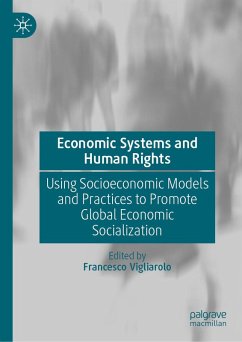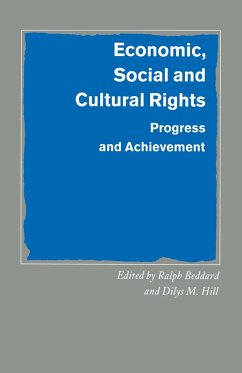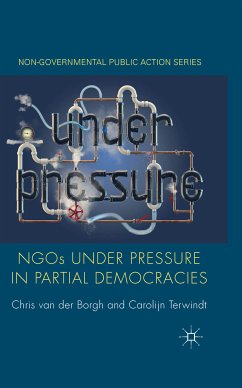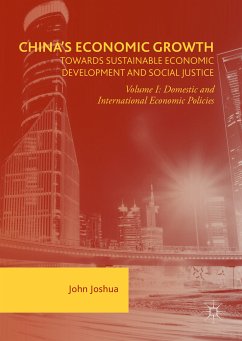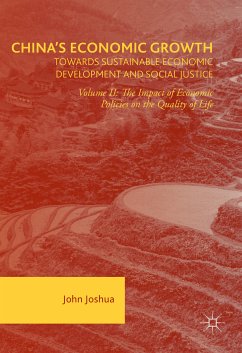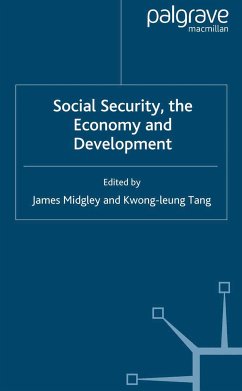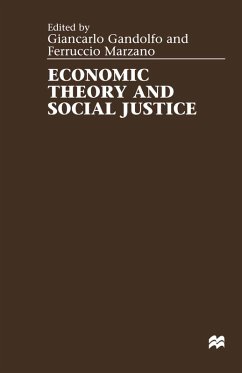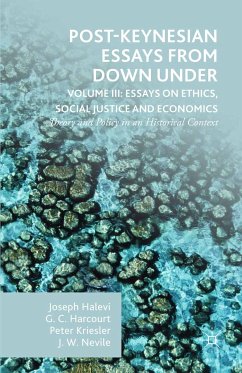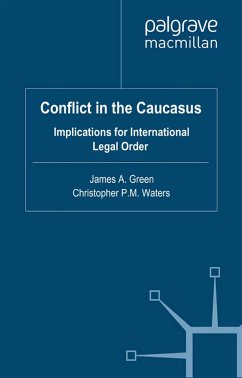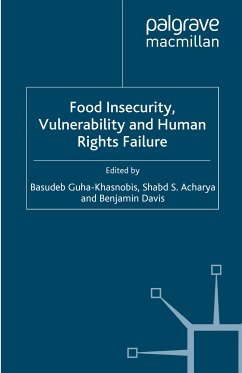
Food Insecurity, Vulnerability and Human Rights Failure (eBook, PDF)

PAYBACK Punkte
36 °P sammeln!






This volume discusses the significance of human rights approaches to food and the way it relates to gender considerations, addressing links between hunger and the HIV/AIDS pandemic, agricultural productivity and the environment.
Dieser Download kann aus rechtlichen Gründen nur mit Rechnungsadresse in A, B, BG, CY, CZ, D, DK, EW, E, FIN, F, GR, HR, H, IRL, I, LT, L, LR, M, NL, PL, P, R, S, SLO, SK ausgeliefert werden.
MANJU BALANA Institute of Development Studies, Jaipur (Rajasthan), India PRADEEP BHARGAVA Institute of Development Studies, Jaipur (Rajasthan), India LYNN BROWN Rural Development Specialist, World Bank, USA ANDREW CHARMAN Director, Sustainable Livelihood Consultants, Cape Town, South Africa JOHN CURRY Food and Agricultural Organization of the UN (FAO), Gender and Development Division, Rome, Italy ALESSANDRA GARBERO, Food and Agricultural Organization of the UN (FAO), Gender and Development Division, Rome, Italy UGO GENTILINI Policy Economist, Social Protection and Livelihoods Service, UN World Food Programme (WFP) JAMES HODGE Engagement Manager at Genesis Analytics; Seasonal Lecturer, WITS JOHN HOURIHAN Food and Agricultural Organization of the UN (FAO), Gender and Development Division, Rome, Italy JOSEPH T. KARUGIA Department of Agricultural Economics, University of Nairobi, Kenya YIANNA LAMBROU Food and Agricultural Organization of the UN (FAO), Gender and Development Division, Rome, Italy REGINA LAUB Food and Agricultural Organization of the UN (FAO), Gender and Development Division, Rome, Italy JOHN UHURU MANYENGO Kenya Agricultural Research Institute, Kakamega, Kenya WILLIS OLUOCH-KOSURA Department of Agricultural Economics, University of Nairobi, Kenya ISABELLA RAE Right to Food Consultant, Food and Agricultural Organization of the UN (FAO) NIRA RAMACHANDRAN Consultant, Unicef, New Delhi, India K. L. SHARMA School of Economics, The University of the South Pacific, Suva, Fiji SHANNON STOKES Food and Agricultural Organization of the UN (FAO), Gender and Development Division, Rome, Italy JULIAN THOMAS Former Coordinator, Right to Food Unit, Food and Agricultural Organization of the United Nations (FAO) ANDREW THORNE-LYMAN Public Health Nutrition Officer, Headquarters of the World Food Programme MARGRET VIDAR Legal Officer, Food and Agricultural Organization of the UN (FAO) S. VIVEK Graduate Student, Syracuse University, USA GUANGHUA WAN Senior Research Fellow, Project Director and Director for Visiting Fellowship and Internship Programme, UNU-WIDER, Finland JULLIET WANJIKU World Agroforestry Centre (ICRAF), Nairobi, Kenya PATRICK WEBB Former Chief of Nutrition for WFP; Dean for Academic Affairs, Friedman School of Nutrition Science and Policy, Tufts University, Boston, USA ESTHER SILVANA WIEGERS Food and Agricultural Organization of the UN (FAO), Gender and Development Division, Rome, Italy ZHANGYUE ZHOU Associate Professor in Business Studies, School of Business, James Cook University, Australia
Produktdetails
- Verlag: Palgrave Macmillan UK
- Seitenzahl: 368
- Erscheinungstermin: 11. Oktober 2007
- Englisch
- ISBN-13: 9780230589506
- Artikelnr.: 38159711
'This book is a very important and timely analysis of interactions between food insecurity, vulnerability and the right to food. Given the continued failure to meet global hunger reduction targets set by the international community it is vitally important to have rigorous analysis of what does and doesn't work. This book, through its wide-ranging coverage of different country and regional experiences, and through its focus on the multi-faceted elements of the hunger problem, provides that analysis. It will be of great importance and utility to policy makers as well as to academics working in the area. I strongly recommend it.' Nick Chisholm, Senior Lecturer in International Development and Food Policy, University College Cork,
Mehr anzeigen
Ireland
'This volume provides a valuable addition to WIDER's rich body of work on the issues of poverty and distributive justice. The essays in this volume should be essential reading for policymakers who remain committed to ending hunger within a more just society.' Rehman Sobhan, Chairman, Centre for Policy Dialogue, Dhaka
'Any single approach to understanding food security oversimplifies. This collection of analyses from various perspectives and contexts helps us to recognize the richness of the food security concept. We may be tempted to take one way of understanding the causes, character and remedies for food insecurity as the correct one, but this volume teaches us that openness to multiple approaches can enrich our appreciation of the meaning of food security.' George Kent, Professor, Department of Political Science, University of Hawaii
'This notable book was not written for readers who are looking for quick and simple solutions of the problem of hunger, but for those who seek to understand the multi-faceted character of food insecurity and who wish to learn from practical experiences. The value of the book lies in the understanding of food insecurity as an outcome of a complex set of physical, economic, social, and political factors and in the special attention to critical determinants, such as vulnerability, gender inequality, and human rights violations, to special issues such as the role of HIV/AIDS or micro-nutrient deficiency, and to experiences with safety net policies as necessary components of comprehensive food security programmes.' Hartwig de Haen, Former Assistant Director-General, FAO and retired Professor, Department of Agricultural Economics and Rural Development, University of Göttingen
'There is much to commend in these papers. In particular researchers in food security will find the papers very useful for identifying priority issues, understanding the methodological complexities and achieving a workable balance between analytical rigour and the limitations of data. While these are tempting areas to comment on, we choose to focus this review on alarming signals which the book provides about the weak prospects for eliminating food insecurity in the nearfuture.' V.M. Rao, Economic& Political Weekly
'...this book takes a timely fresh look at food security and global hunger.' - Food Ethics (The Magazine of the Food Ethics Council)
'This volume provides a valuable addition to WIDER's rich body of work on the issues of poverty and distributive justice. The essays in this volume should be essential reading for policymakers who remain committed to ending hunger within a more just society.' Rehman Sobhan, Chairman, Centre for Policy Dialogue, Dhaka
'Any single approach to understanding food security oversimplifies. This collection of analyses from various perspectives and contexts helps us to recognize the richness of the food security concept. We may be tempted to take one way of understanding the causes, character and remedies for food insecurity as the correct one, but this volume teaches us that openness to multiple approaches can enrich our appreciation of the meaning of food security.' George Kent, Professor, Department of Political Science, University of Hawaii
'This notable book was not written for readers who are looking for quick and simple solutions of the problem of hunger, but for those who seek to understand the multi-faceted character of food insecurity and who wish to learn from practical experiences. The value of the book lies in the understanding of food insecurity as an outcome of a complex set of physical, economic, social, and political factors and in the special attention to critical determinants, such as vulnerability, gender inequality, and human rights violations, to special issues such as the role of HIV/AIDS or micro-nutrient deficiency, and to experiences with safety net policies as necessary components of comprehensive food security programmes.' Hartwig de Haen, Former Assistant Director-General, FAO and retired Professor, Department of Agricultural Economics and Rural Development, University of Göttingen
'There is much to commend in these papers. In particular researchers in food security will find the papers very useful for identifying priority issues, understanding the methodological complexities and achieving a workable balance between analytical rigour and the limitations of data. While these are tempting areas to comment on, we choose to focus this review on alarming signals which the book provides about the weak prospects for eliminating food insecurity in the nearfuture.' V.M. Rao, Economic& Political Weekly
'...this book takes a timely fresh look at food security and global hunger.' - Food Ethics (The Magazine of the Food Ethics Council)
Schließen
Für dieses Produkt wurde noch keine Bewertung abgegeben. Wir würden uns sehr freuen, wenn du die erste Bewertung schreibst!
Eine Bewertung schreiben
Eine Bewertung schreiben
Andere Kunden interessierten sich für


